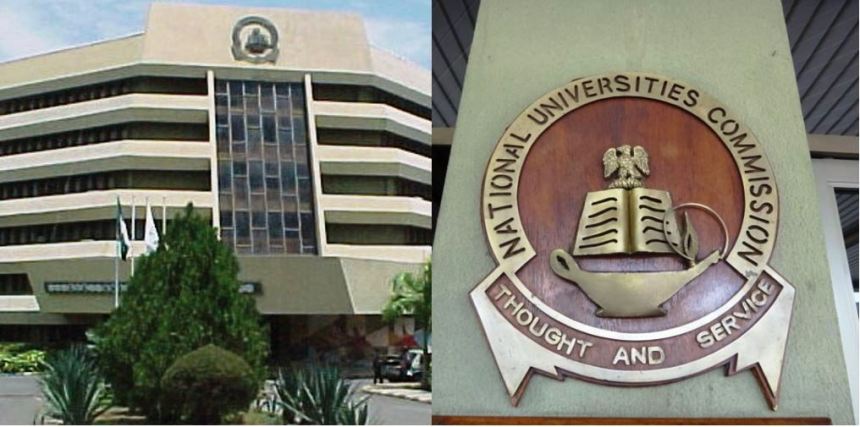By Adefolarin A Olamilekan
The global economy is currently uninspiring as it is still under the sieges of inflation. That demonstrates a spike in over 9% globally. With a worsening purchasing power and dampening economic outlook of countries. Although each country is experiencing uncommon inflation pressures. Hence, the fact about the phenomenon of Inflation resides in both positive and negative forms of economic growth. Which perhaps in context of the meaning of Inflation suggested. it is the rate at which the value of a currency is failing and consequential general rise in prices of goods and services.
As of today the economies of both developed and developing nations are under the weight of Demand Pull Inflation and Cost Pull Inflation. With inadequacy in supply of gas and disruption in meeting demands of certain foods items. The whole world is under the excruciating pains of global energy and food inflation rising cost and demand trend. That is acknowledge as partly caused by the Russians – Ukrainian war.
For instance,many African countries are facing inflationary pressures with devastating impact on there people. This inflation’s exogenous pressures continue to impact African economies with reference to Ghana 33.9%, Rwanda 20.4%, Uganda 9% and South Africa 7.8% respectively.
Conversely, aforementioned sub African countries and others in the continent contend chiefly with food Inflation that is taking away meals from homes. At the same time as the leading factor against better nourishments.
Unfortunately, my dear nation Nigeria, as not being spare from hard nock of inflation. Just recently the country National Bureau of Statistics (NBS) released Consumer Price Index (CPI) report that showed that Nigeria’s CPI rose by 20.52% year-on-year in August 2022. The Consumer Price Index (CPI) and the Whole Sales Price Index(WSPI) are the most commonly used inflation model. Nevertheless, Nigeria’s latest CPI model showed that Africa’s biggest economy reported a spike in inflation at 20.52% in the month of August 2022. Meanwhile, this latest report indicated inflation is in it seventh months rise trajectory’s. With such high record last witnessed in 2005 at 24.3% highest level,that was 17 years ago.
However, according to the NBS, the rise in food inflation was caused by increases in prices of bread and cereals, Potatoes, yam and other tuber, fish, meat, oil and fat.
The report noted that the average annual rate of food inflation for the twelve-month period ending August 2022 over the previous twelve-month average was 19.02%, which was a 1.48% decline from the average annual rate of change recorded in August 2021 (20.50%). Sadly, what this means is that Nigerians have had to contend with upward trajectories of food inflationary pressures.
Critically also the report show that the highest increases in prices of Gas, Liquid fuel, Solid fuel, Passenger transport by road, Passenger transport by Air, fuel and lubricants for personal transport equipment, Cleaning, Repair and Hire of clothing. Have all contributed to the hardship people go through on daily basis.
This has been a big challenge to Nigerian’s as well as reducing there access to basic food items and limiting them from other non food things.
With current state of affairs of our nation economy under the sieged of Inflation. How can the Central Bank of Nigeria (CBN) being the authority to monitor,guard and keep Inflation at bar. Save us all from the weight of inflation that is sparing know nation. Even though we acknowledge the fact that inflation is a global phenomenon. Interesting also we can rule out the possibility that nation across the globe are taking deliberate and desperate measures. With a lots of locally suitable ideas to save there people and economy at large. Not envying the current CBN managers. it is our believed that CBN must get it right in it fight against inflation. And for us what becomes clear from the Apex bank recent monetary policy stance rate of 14% to fight inflation is not working. Rather it compounding the situation with a lots of uncertainty around the value of the naira.
Particularly, as the Naira continued to nose dive from 701,706,710 and to an all-time low of 720 to the dollar. That erode the purchasing power of citizen on what they can buy. Hence, this persistent currency depreciation as factor in the general increased of cost of production.
Nevertheless, the CBN is much aware of this that why it has being pushing for greater export so as to earn more forex. Because our import dependence is a disruption to naira stability. However, failing CBN policy intervention and poverty of the Monetary Policy Committee (MPC) rate and tightening measures would not bring inflation figures down, as the issue is structural and influenced mostly by the cost of importing foreign products as well as petroleum products.
In the light of this revelation, What needs to be done? As the CBN prepared for it next MPC’s meeting in couple of days from now. With many analyst suggesting for another round of interest hike. Although the World Bank have come out to warn central banks across the world to stop further rate hike that could lead to global recession. For us rate hike cannot be used to fight Inflation.
Rather the government needs to formulate and implement complementary monetary and fiscal policies aimed at boosting food supply as well as reducing firm’s cost of production.
Another is addressing the issue of insecurity at the farm gates,as well as limiting the excesses of middle men.
Further more,is the CBN policy target in the export sector through such as the FX200 and other initiatives must be sustain beyond the current apex bank handlers.
Nigerians are hoping that CBN in its next MPC’s meeting would come out with practical strategic policies to address Inflation conclusively.





